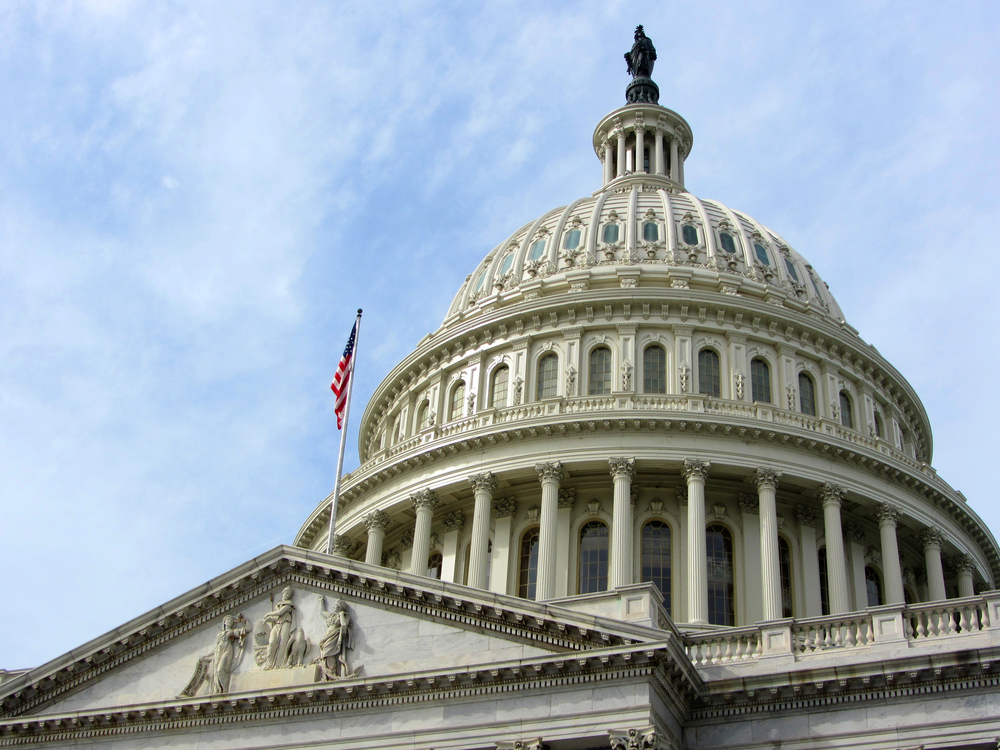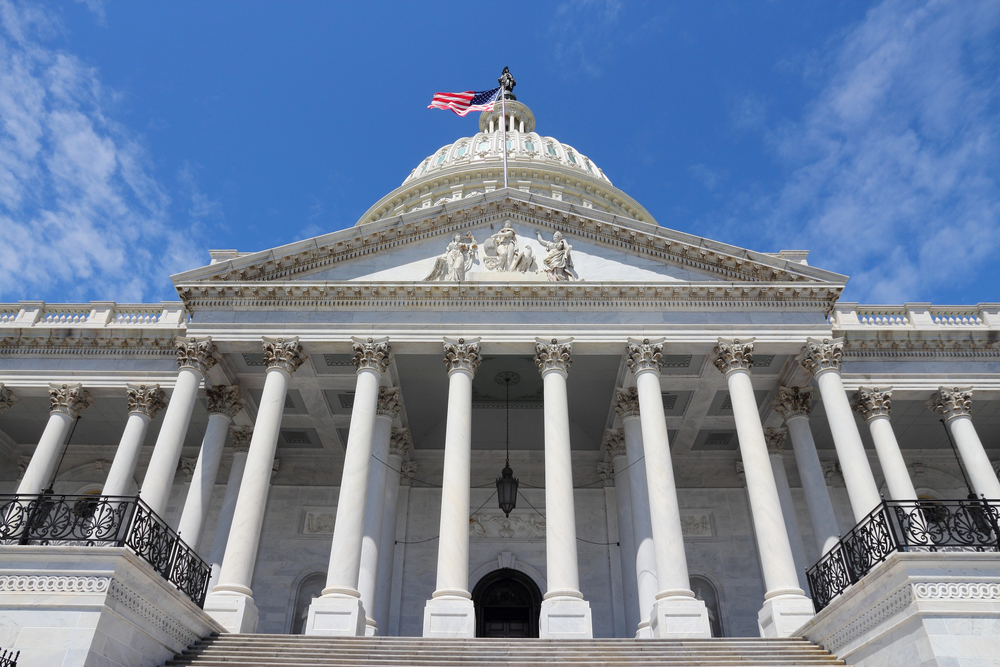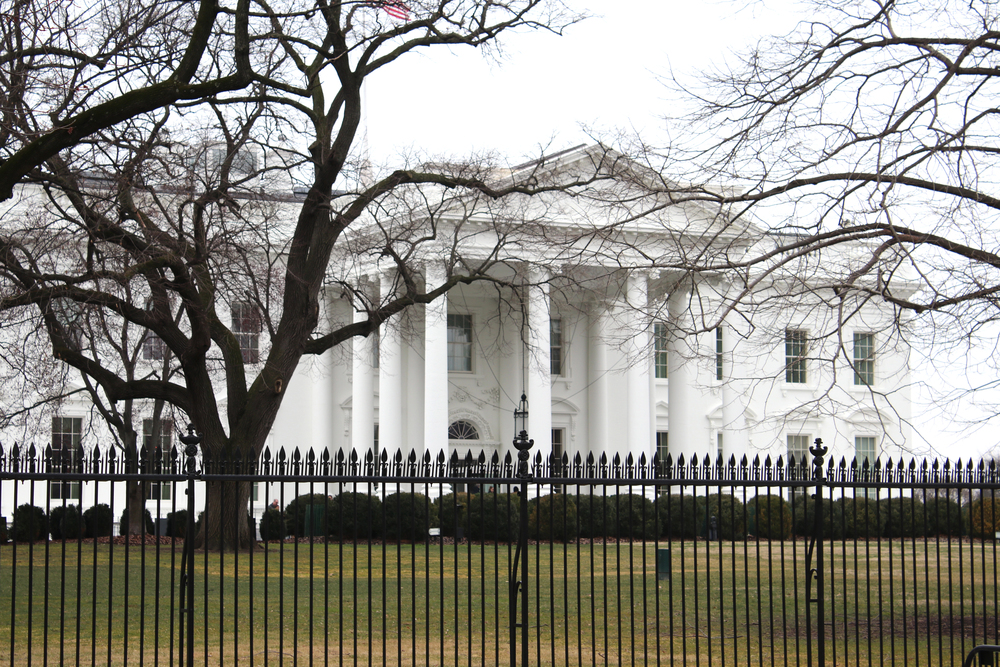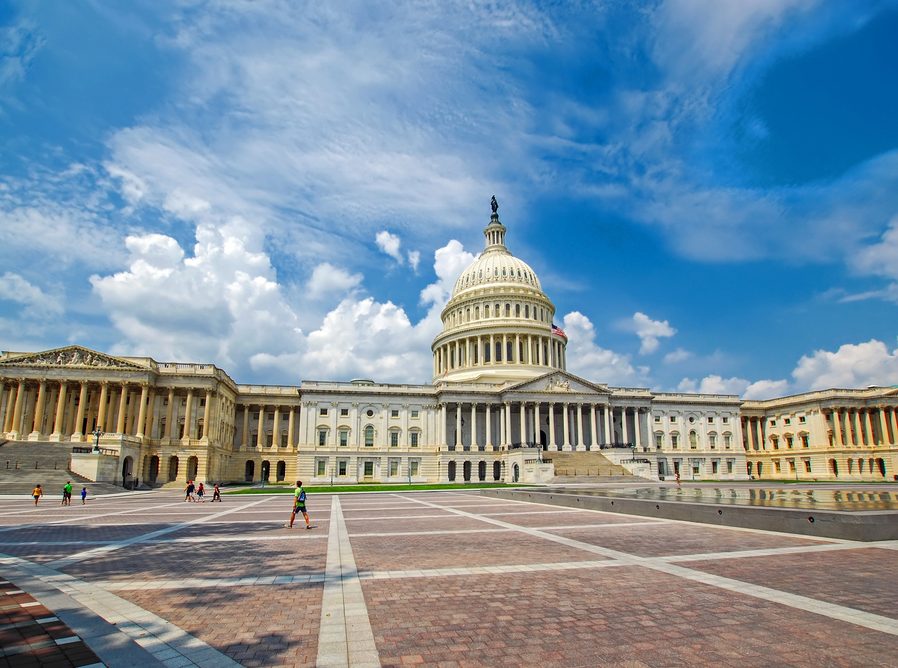Rep. Luetkemeyer Talks Tax Increase Dangers and State-Based Insurance Regulation
By: AnneMarie McPherson
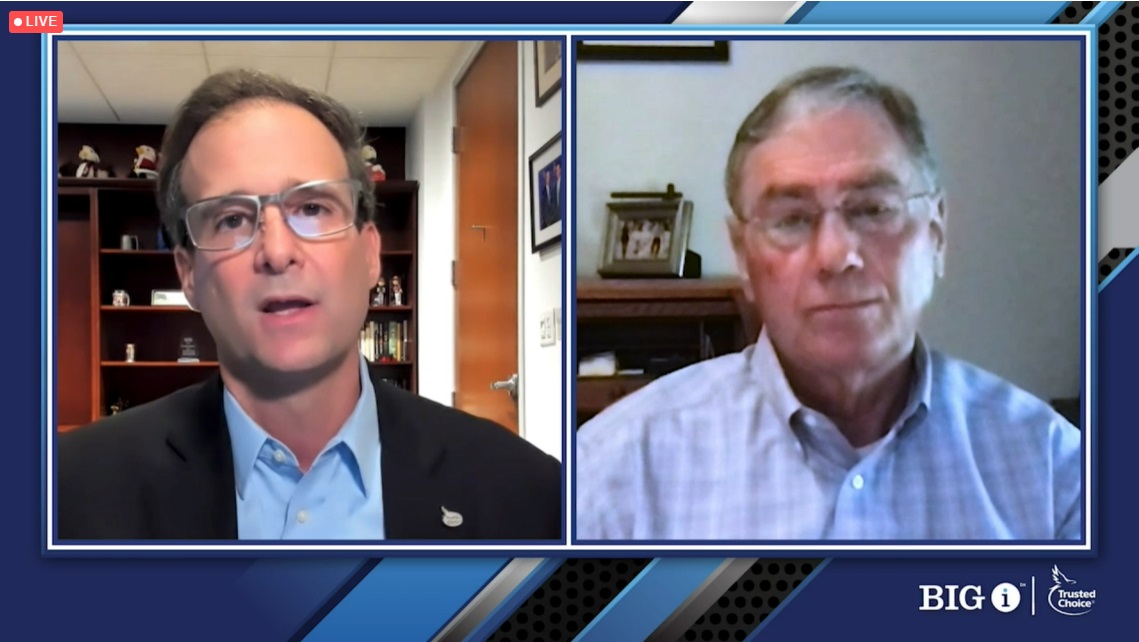 Rep. Blaine Luetkemeyer (R-Missouri) spoke from experience as he was interviewed by Charles Symington, Big “I” senior vice president of external, industry and government affairs (pictured left) on issues important to independent insurance agents during the 2021 Big “I” Virtual Legislative Conference, referencing his 30+ years in the insurance business.
Rep. Blaine Luetkemeyer (R-Missouri) spoke from experience as he was interviewed by Charles Symington, Big “I” senior vice president of external, industry and government affairs (pictured left) on issues important to independent insurance agents during the 2021 Big “I” Virtual Legislative Conference, referencing his 30+ years in the insurance business.
“My father started the agency back in ’46 and now my son’s got it—so we’re actually celebrating our 75th year of Luetkemeyers in the insurance business here in our little small town in mid-Missouri,” he said.
“It’s been very helpful having that experience and standpoint,” Rep. Luetkemeyer (pictured right) continued. “Having that broad experience has been very helpful to me to be able to understand issues, to be able to talk about these issues with my colleagues who do not have that insurance background.”
As ranking member of the House Committee on Small Business and one of the leading voices on the bipartisan Paycheck Protection Program and its recent extension through May 31, Rep. Luetkemeyer “worked with the leadership on the other side of the aisle to get that done in a way I think that is acceptable to most folks,” he said.
However, Rep. Luetkemeyer warned that for small businesses to continue to recover, stimulus via the federal government should be temporary.
“We’re trying to wean people off of it, and I think that can be done as long as this administration doesn’t change the underpinnings of the economy,” he said. “If you look at what happened in the first three years of the Trump Administration, they lowered regulations and they lowered taxes. And by minimizing regulation and lowering taxes, it empowered the individuals and businesses of this country and a roaring economy resulted. Record revenues for the government came in even though they lowered the tax rate.”
“As long as this administration does not change that dynamic and kick the feet out from underneath the economy, our small businesses are going to be fine,” he added. “The pandemic is being managed now. I think the lockdowns have hurt. And I think as long as we take those off and manage the COVID exposure, our business community can figure it out.”
Rep. Luetkemeyer specifically referenced the $300-a-week boost in supplemental federal unemployment aid combined with the $1,400 federal stimulus check as incentives for employees to leave their employment.
“One of my constituents who owns a big contracting company, the day after the stimulus checks came out, he called me and said, ‘Hey, the stimulus checks came out yesterday but today 25% of my people walked off the job,” Rep. Luetkemeyer said. “That’s going to hurt employees, being able to supply the workers that it takes the employers to be able to keep our supply chains going, to keep products and services going, and a $300 check is a disincentive for people to go back to work.”
When asked by Symington about H.R. 1270, the Prohibit Auto Insurance Discrimination (PAID) Act, which broadly preempts state oversight of insurance underwriting and gives the Federal Trade Commission (FTC) enforcement authority over some insurance issues, Rep. Luetkemeyer said that “whenever you limit the amount of the industry’s ability to assess risk, it’s going to increase costs.”
“Everybody’s going to be paying more for their insurance, whether that’s house, car, business, health, life,” he continued. “It’s very important that they have this data and be able to put it into their models correctly and minimize the costs to the individuals and companies and the businesses they serve.”
Referencing the component of the act that would give regulatory authority to the FTC, Rep. Luetkemeyer said he truly believes that “the insurance industry is best regulated at the state level. There can be some federal parameters, but the states need to be able to have the flexibility to address their own unique issues, their own unique citizens and industries within those states. That can best be done by state-based regulation.”
AnneMarie McPherson is IA news editor.


